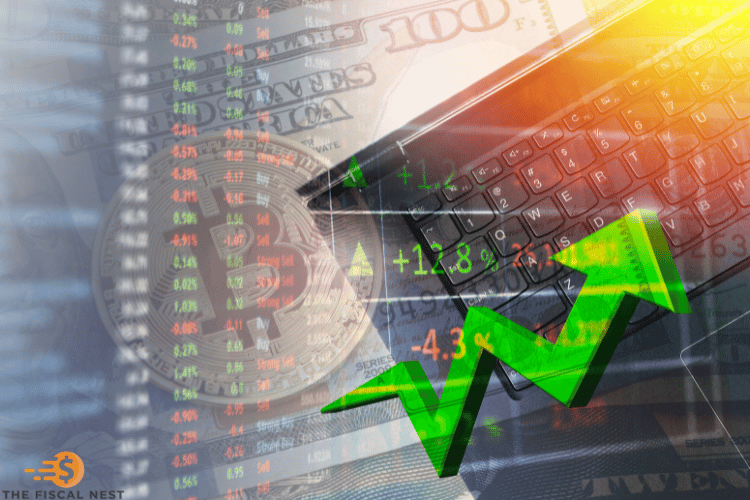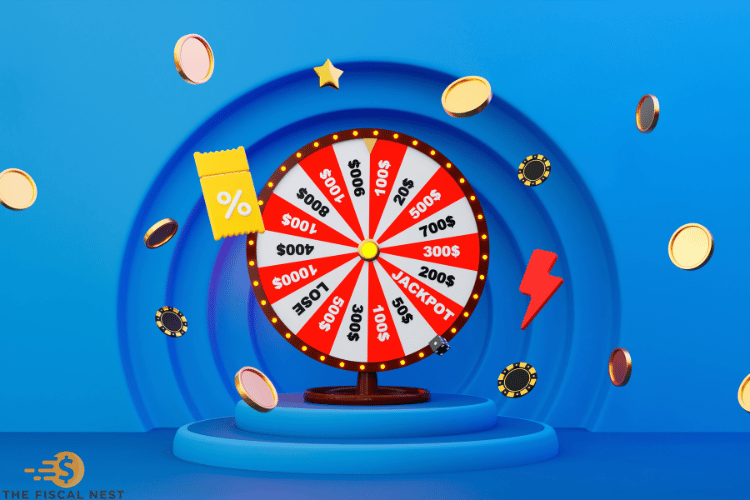Though it can be profitable, investing in Fortune Coin is risky and investors need to comprehend this. These cryptographic assets present great chances but are associated with market volatility, unclear regulatory regimes, as well as weaknesses that may compromise security. This guide focuses on the different risk aspects of investments made using fortunes tokens thus empowering investors to make informed choices. Individual risks must be weighed against each threat before making investment decisions ranging from market manipulation to technology glitches. Getting insights about such hazards helps build trust and resilience for any investor navigating through this digital asset universe.
1. Wild Fortune Coin Price Swings
Fortune’s currency is known for its price volatility. Unlike mainstream assets in the capital market like shares or bonds which perhaps have relatively stable price movements, Digital currencies may undergo drastic changes within small durations of time. Prices can be influenced by factors such as market moods, regulation changes, technological developments and global macroeconomic trends among others. Risk tolerance should first be measured to withstand unexpected price shocks before deciding on an investment option.
2. The Regulatory Indeterminacy of Fortune Coin Casino
Different jurisdictions have different legal and regulatory frameworks for fortune silvers. However, governments and global regulators are grappling with how to categorize and regulate these digital assets. Uncertainty about the regulation of digital currency casinos is a risk factor which affects investors in this industry.
This uncertainty can destabilize the market and impact investor confidence. It is therefore important to keep up with changes in regulations and adjust investment strategies accordingly. Future rule uncertainties may create market instability and influence investor trust. To do so, they need to stay updated on governing developments and modify their investment approaches accordingly.
3. The Security Dangers in Cryptocurrencies
Digital currencies are at risk from several insecurities like hacking, phishing attacks or malware infections. Furthermore, exchanges as well as digital wallets where traders save their coins are commonly sought by cybercriminals for exploitation purposes. No system is completely secure despite improvements done on security systems themselves. To enhance their security practices, investors must make sure that they use reputable exchanges, enable two-factor authentication and store their coins offline in cold wallets to mitigate the risk of theft.
4. Manipulation of the Virtual Currency Market
The decentralization feature of virtual currency makes it vulnerable to market manipulation. Malicious actors usually carry out pump-and-dump schemes, spoofing and wash trading among others to push up or down prices artificially for their gains. Such practices can mislead unsuspecting investors and result in significant financial losses. Investors should therefore research extensively, analyze the trading patterns and watch for overly positive or negative market sentiments.
5. Liquidity Risk of Digital Assets & Fortune Coin
Liquidity means the comfort with which a security can be bought or sold without affecting its value. For digital assets, especially those with low market capitalization or trade volumes liquidity risks are involved. Illiquid markets may make it difficult for investors to execute trades at desired prices resulting in slippage as well as diminished returns. Before investing in less liquid coins investors should consider how this affects overall portfolio liquidity and trading strategy though.
6. Technological Risks Related to the Use of Cryptographic Tokens
Blockchain technology is still under development and hence many things need to be improved in it. Because of this, various technological weaknesses such as software vulnerabilities, consensus failures, and protocol updates pose great dangers to the stability and security of digital assets. Moreover, emerging technologies like quantum computing have the potential to undermine the foundational cryptography of blockchain networks in the future. Consequently, investors should keep themselves updated with new technologies and evaluate whether their underlying infrastructure is secure enough before they can invest.

7. Counterparty Risks on Digital Crypto Tokens
Investors are exposed to counterparty risks when trading these digital fortune tokens on centralized exchanges. These intermediaries connect buyers and sellers whereby their financial capability and trustworthiness are crucial aspects one ought to consider first before engaging them. Instances, where exchanges have been hacked, become insolvent or shut down, might result in loss of funds or access limitation to some assets. Additionally, investors should carry out due diligence on the reputation of exchange platforms as well as their withdrawal policies together with insurance cover to effectively minimize any counterparty risk involved with them.
8. Blockchain Asset Legal and Compliance Risks
The legal and compliance landscape surrounding blockchain assets complex and constantly evolving. Different jurisdictions have varying regulations regarding the issuance, trading, and taxation of digital assets. Investors may face legal uncertainties related to the legality of certain coins, tax implications of trading or holding cryptocurrencies, and compliance with anti-money laundering (AML) and know-your-customer (KYC) regulations. Failure to adhere to relevant laws and regulations could result in fines, penalties, or even legal consequences. Investors should seek professional legal advice and ensure compliance with applicable regulations to mitigate legal and compliance risks effectively.
9. Cryptographic Currency Governance Risks
Fortune cash operating on decentralized networks often involves governance mechanisms for making protocol-level decisions and implementing changes. However, governance structures within blockchain communities can be decentralized, informal, or even contentious, leading to governance risks. Disputes among stakeholders, conflicting interests, and governance deadlock can hinder decision-making processes and impede the evolution of the protocol. Investors should assess the governance mechanisms of the Digital currency they invest in, evaluate the level of community participation, and monitor governance-related developments to gauge the resilience of the project.
10. Adoption Risks of Tokenized Asset
The success of Fortune Money ultimately depends on its adoption and utility within broader ecosystems. Factors such as user adoption, developer activity, institutional interest, and regulatory acceptance influence the long-term viability and value proposition of digital assets. Projects with limited real-world use cases or adoption may struggle to gain traction, resulting in diminished investor confidence and value erosion.
Investors should evaluate the adoption potential of Digital currency by analyzing factors such as network effects, partnerships, use-case relevance, and market demand. Investing in coins with strong fundamentals and widespread adoption prospects can help lessen adoption risks and enhance investment returns.
Fraudulent Schemes In The Fortune Coin Market
In the rapidly evolving world of digital assets, the Fortune token market is not immune to fraudulent schemes.
- Fake ICOs (Initial Coin Offerings): Fraudsters create fake projects and promote them through ICOs, enticing investors with promises of high returns.
- Ponzi Schemes: These schemes promise high returns to early investors by using funds from new investors. Eventually, the scheme collapses when there are not enough new investors to sustain it, resulting in significant losses for latecomers.
- Pump-and-Dump Schemes: In these schemes, manipulators artificially inflate the price of a token by spreading false information or creating hype. Once the price peaks, they sell their holdings, causing the price to plummet and leaving other investors with losses.
- Phishing Scams: Scammers create fake websites or impersonate legitimate projects to steal investors’ personal information or private keys. They may also send phishing emails with malicious links to compromise accounts.
- Exit Scams: Some projects raise funds through ICOs or token sales and then disappear with investors’ money without delivering the promised product or service.
To protect themselves from fraudulent schemes, investors should conduct thorough due diligence, verify the legitimacy of projects and teams, avoid investing in schemes that promise guaranteed returns or sound too good to be true, and use reputable exchanges for trading. Additionally, staying informed about the latest scams and regulatory developments can help investors identify and avoid fraudulent schemes in the Fortune token market.
Is Fortune Coins Legit?
The authority of Fortune Tokens, like any digital asset, depends on several factors. Investors should conduct due diligence to evaluate the credibility, transparency, and security measures of the project issuing the tokens. Legitimate Fortune Tokens typically have transparent documentation, clear use cases, active development teams, and community support. However, investors should be cautious of potential scams or fraudulent schemes in the digital asset space. Researching the project’s whitepaper, team members, partnerships, and community feedback can help investors establish the legitimacy of Fortune Tokens before investing.

Conclusion: Fortune Coin Investment
While Digital currencies offer exciting investment opportunities, they also come with inherent risks that investors must understand and manage effectively. Recognizing the volatility, regulatory uncertainty, security vulnerabilities, market manipulation, liquidity constraints, technological challenges, and counterparty risks associated with Fortune digital cash investments enables investors can make informed decisions to protect their capital and pursue long-term financial goals.
FAQs
What is the cheapest game on fortune coins?
The cheapest game on Digital money varies depending on the platform and current market conditions. Some platforms offer games with low entry costs, such as simple lotteries or dice games, where players can participate with minimal investment. It’s essential to research different games and platforms for the best value.
How do I assess my risk tolerance before investing in Fortune Money?
Assessing your risk tolerance before investing in Fortune Money involves evaluating your financial situation, investment goals, and comfort level with uncertainty. Consider factors such as your time horizon, financial obligations, and emotional response to market fluctuations. Additionally, reflect on past investment experiences to gauge your ability to withstand volatility and potential losses. Consulting with a financial advisor can also provide valuable insights into determining your risk tolerance.
How do global economic factors influence the value of Fortune Cash?
Global economic factors can significantly influence the value of Fortune Cash. Economic indicators such as interest rates, inflation rates, GDP growth, and geopolitical events impact investor sentiment and confidence in digital assets. Additionally, currency fluctuations, trade policies, and fiscal policies implemented by governments worldwide can affect the purchasing power and demand for Fortune Cash. Understanding these macroeconomic dynamics is crucial for assessing the long-term viability and value proposition of Fortune Cash investments.







